Interest in plant-based milk is rising as more people consider alternatives to dairy milk from cows, sheep, or goats. Many parents explore these dairy alternatives because of common allergy issues, like lactose intolerance or cow’s milk intolerance, that can affect children.
Driven by a vegan lifestyle and a desire to reduce animal products in their diets, families are finding value in plant-based milks for toddlers. This shift isn’t just recent; it’s backed by history, with options like coconut milk used in cooking and ceremonial practices in places like India and Southeast Asia for centuries.
Likewise, soy milk has roots as early as 1365 in China. This movement reflects a broader trend, with sales of dairy alternatives growing to $21 billion between 2009 and 2015 and consumption of cow’s milk dropping by 13%. This resurgence in popularity highlights the potential benefits of plant-based options, drawing more attention from parents seeking safe choices for their toddlers.
Is Plant-Based Milk Safe for Toddlers?
Choosing plant-based milk for babies and toddlers is a thoughtful decision for many parents who wonder if plant milk can be a safe and nutritionally adequate alternative to cow’s milk. While traditional cow’s milk has often been seen as superior in meeting children’s nutritional needs, today’s plant-based options like soya, almond, and oat can offer a healthy, balanced diet when chosen carefully.
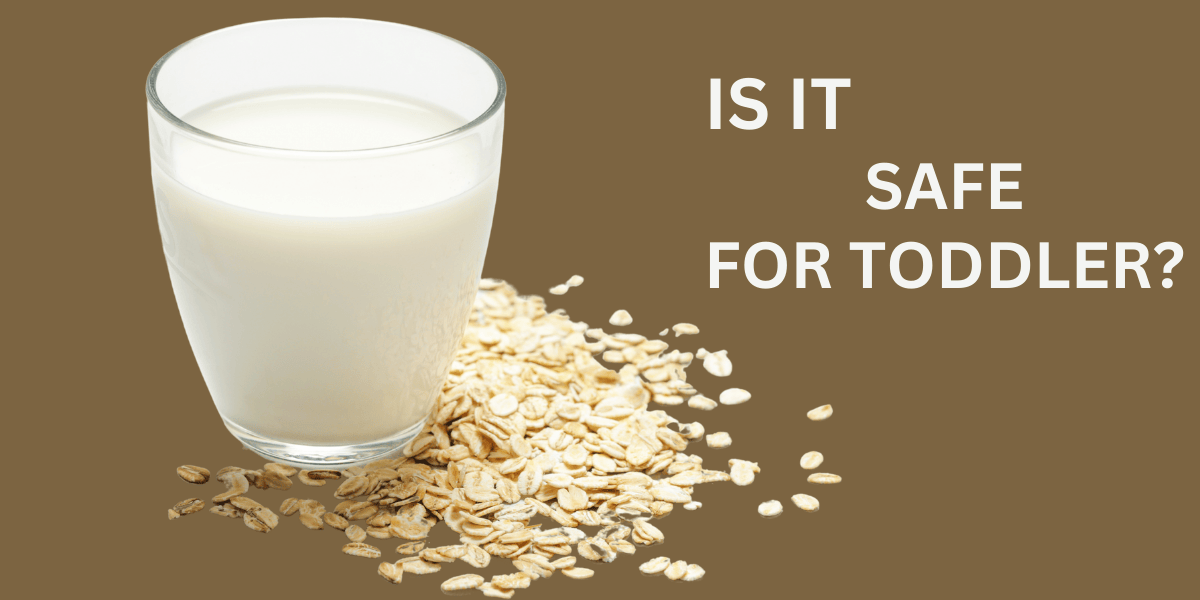
For toddlers aged one and above, these milk alternatives can be fortified to provide essential nutrients and work well in cooking options like porridge, cereal, or sauces. According to the NHS, an unsweetened, fortified drink can support growth in growing kids as part of a balanced nutrition plan.
For children below 6 months, though, plant milks are not recommended, and after 1 year, they should be part of a varied toddler diet that ensures food safety and balanced nutrition.
Breastfeeding and Nutrition for Young Toddlers
The American Academy of Pediatrics (AAP) recommends that infants be breastfed or given formula as their primary source of nutrition until at least the age of 1 year, ensuring they receive enough calories, fat, and key nutrients like calcium. While plant milks might seem appealing, they lack essential nutrients that breastmilk or a soy-based formula provide during the early weaning period.
For babies beyond 12 months, small amounts of plant milks can be added in recipes like pancakes or chia pudding, but these should not replace breastfeeding or formula if a baby still desires milk as a main nutrition source.
Are Plant-Based Milks Nutritionally Better?
Choosing the best milk for toddlers can be challenging, especially with so many plant-based milk options available as non-dairy and dairy-free milk alternatives. Many parents wonder if these alternative milk sources are as nutrient-rich as traditional cow’s milk. Key nutrients like calcium, protein, and iodine are important for toddler-friendly milk, helping support energy levels and growth.
Some fortified options offer added vitamin D, riboflavin (B2), and B12 to help make up for natural nutrient deficiencies that may exist in plant-based alternatives. By carefully checking milk labels, parents can find fortified milk choices that meet recommended nutrient levels for young children.
Among plant-based milk alternatives, soya milk is often preferred due to its protein content—closely matching cow’s milk—which is critical for nutrient absorption and overall child nutrition. However, other milk options such as almond or oat milk may not contain as much protein or fat, making it essential to choose a fortified type to cover nutrient intake needs like calcium and iodine levels.
The fortification process adds key nutrients to non-dairy milks, supporting balanced nutrient values for toddlers who need consistent energy and carbohydrate levels for their active lifestyles.
For families following a plant-based diet or a health-conscious diet, it’s worth comparing the nutritional benefits of each milk alternative. Nutritional comparison between whole milk and various plant-based options (as described in table below) shows that fortified milks provide an advantage in avoiding potential nutrient deficiencies.
With vitamin supplementation and iodine in milk provided by certain fortified brands, toddlers can enjoy a safe and balanced diet without relying solely on dairy substitutes. This variety of plant-based nutrition offers flexibility while ensuring children get the necessary nutrients for healthy growth.
| Per 100ml | Whole cows’ milk | Oat Average (Fortified) | Soy Average (Fortified) | Coconut Average (Fortified) | Almond Average (Fortified) | Pea Average (Fortified) |
|
Energy (kcal) |
66 | 49.8 | 34.69 | 29.46 | 16.20 |
29.67 |
|
Protein (g) |
3.3 | 0.8 | 2.92 | 0.86 | 0.64 | 1.90 |
| CHO (g) | 4.6 | 6.8 | 1.98 | 2.70 | 0.73 |
0.83 |
|
Fats (g) |
3.6 | 2.0 | 1.68 | 1.70 | 1.17 | 2.13 |
|
Calcium (mg) |
120 | 116.6 | 120.17 | 128.50 | 120.14 |
140.00 |
| Riboflavin (mg) | 0.23 | 0.2 | 0.21 | 0.50 | 0.21 |
0.21 |
|
Vitamin B12 (μg) |
0.9 | 0.4 | 0.41 | 0.39 | 0.43 | 0.55 |
| Vitamin D(μg) | Traces | 0.9 | 0.88 | 0.85 | 0.86 |
0.92 |
|
Iodine (μg) |
31 | 22.7 | 31.73 | 20.18 | 34.13 |
30.00 |
Choosing the Best Plant-Based Milk for Toddlers
How to Choose a Non-Dairy Milk Alternatives for Toddlers?
Parents today have more non-dairy milk alternatives to consider for their toddlers than ever before, thanks to the growing variety of plant-based milks available in the supermarket. Many parents ask if these options are suitable for young children, especially with increasing interest in plant-based nutrition for family health and sustainability.
Although dairy milk has traditionally been recommended as a main drink after one year of age for its essential nutrients like vitamin D and calcium, options such as soy milk and pea protein milk can also offer protein, fat, and other needed nutrients, depending on a family’s needs and budget.
For children with child food allergies, these milk alternatives may even be the best milks to avoid potential reactions to cows’ milk. Whether parents are opting for these choices due to taste, nutrition, or health concerns, the market is set to keep growing, with organizations like the Vegan Society UK projecting sustained growth in plant-based milks from 2020-2025.
How to Spot the Best Plant-Based Milk for Babies and Toddlers
When looking into ways to choose the best milk for toddlers, focusing on plant-based milk options means checking for essential nutrients that support healthy growth. Look for milk alternatives with key nutrients like protein, calories, and calcium, as these are vital for toddlers’ nutrition.
Some plant-based options might lack certain micronutrients, so finding fortified varieties with vitamin B12, B vitamins, vitamin D, and iodine is essential. A suitable plant drink should also include correct nutrients found in traditional dairy milk. Choosing fortified milk can meet nutritional needs, and selecting a non-dairy option that works in cooking ensures balanced growth for your toddler.
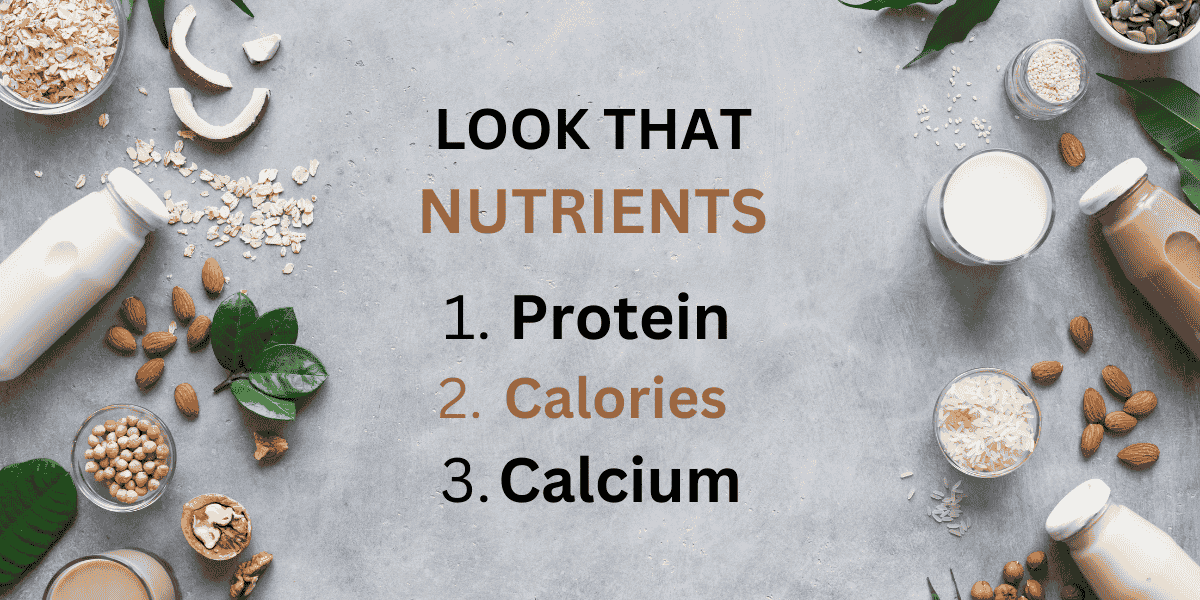
The Best Plant-Based Milks for Toddlers
After an infant’s first birthday, parents often consider switching to plant milk for a growing toddler who may have different nutritional needs. Not all plant milks are equal in providing adequate levels of calories, fat, carbohydrates, and protein that support proper growth and brain development.
For children, the USA recommends full-fat, unsweetened, and fortified options with key nutrients like Vitamin D, Vitamin B12, and Calcium for a balanced diet. Soy milk is often considered the best plant milk choice because it is usually fortified and closer to cow’s milk in nutrition, making it especially suitable for kids needing adequate fat per serving.
Low-calorie options like light or lower-fat versions may not be recommended since they typically provide less calories and may not meet a toddler’s nutritional needs.
Types of Plant-Based Milk for Toddlers
Soy Milk
For parents looking at plant-based options, soy milk is a well-known dairy-free alternative that provides important proteins essential for toddlers’ growth. Unlike many other milk alternatives, soy contains one of the highest protein contents among non-dairy drinks, making it a solid choice to consider alongside cow’s milk.
Popular brands like Alpro Soya Growing Up Drink offer fortified versions that include calcium, B vitamins, vitamin D, and even iodine to help meet a toddler’s nutritional needs. For little ones who need an extra boost, soy drinks can be added to recipes like porridge or a sauce without affecting the taste much, providing flexibility in their diet.
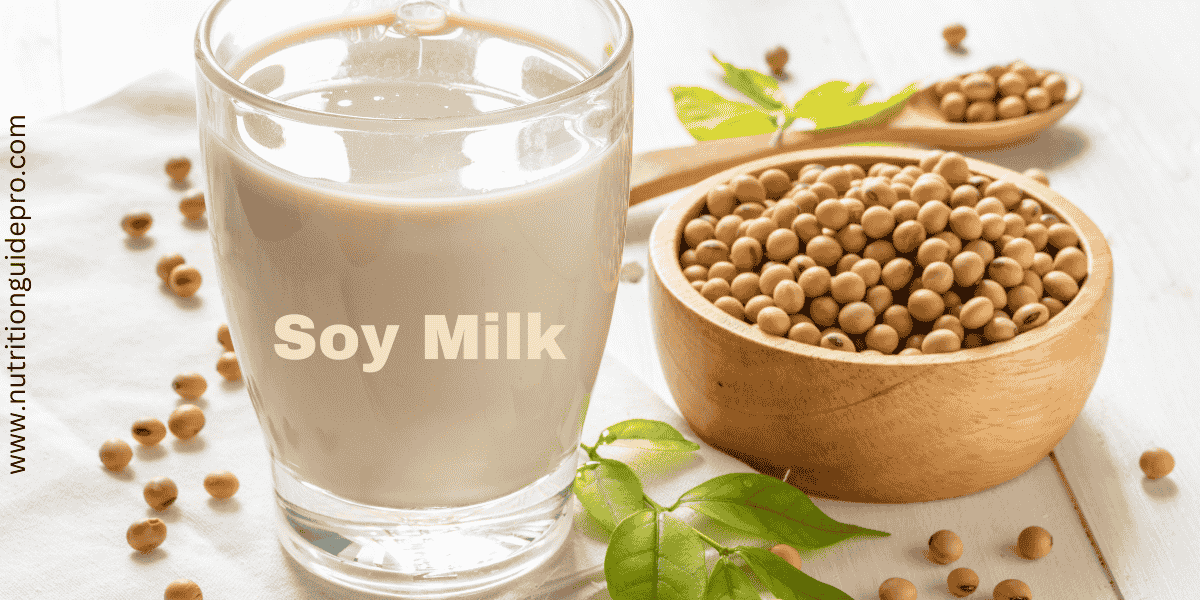
When selecting soy milk for kids, it’s best to choose unsweetened or plain varieties that limit added sugars and unnecessary flavorings. Check the carton labels carefully to confirm it’s fortified with nutrients like iron to support absorption and prevent iron deficiency and anemia, which are common concerns on a plant-based diet.
As a pediatric dietitian may suggest, aim for a nutrient-dense option that’s low in calories but still contains healthy fats for balanced development. With options in both original flavor and homemade choices, soy milk can be a safe, ideal source for parents wanting to offer a reliable non-dairy milk alternative that fits well into a healthy diet for toddlers.
Oat Milk for Babies and Toddlers
For parents considering oat milk as an option for toddlers and babies starting weaning with solids, it’s a mild, versatile choice that works well in porridge, cooking, and even white sauce recipes. However, experts advise that breast milk or a specialist infant formula remains essential for babies under 12 months to support their development.
Since oat milk is often fortified with calcium, iodine, and vitamins to improve its nutrient profile, it can be suitable as an occasional drink for toddlers, though it’s low in protein compared to other options. For instance, 1 cup of unsweetened oat milk typically provides around 3 grams protein, 9 grams fat, 15 grams carbohydrate, 350 mg calcium, 160 mcg vitamin A, and 3.6 mcg vitamin D—making it a solid plant milk alternative, but not a complete replacement for specialist advice from a pediatric dietitian.
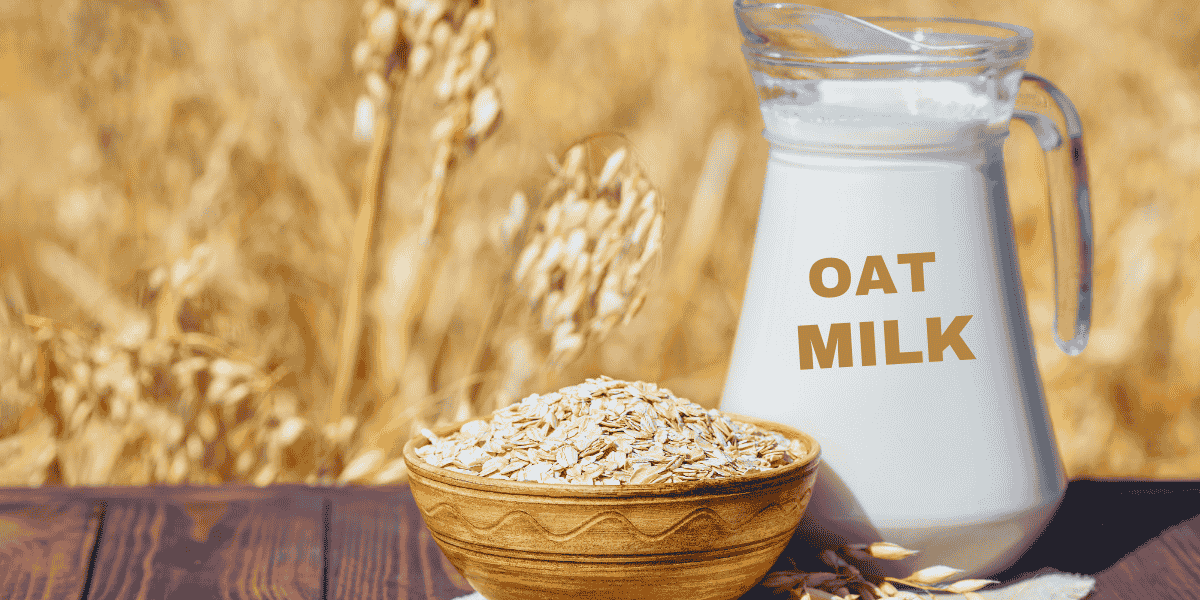
Some parents prefer oat milk made with oats, oils, and specific brands that balance nutritional content with a high-quality variety of protein and fat to meet the needs of young children with cow milk protein allergy or other sensitivities.
Pea Milk
Pea milk has become a popular drink in recent years, although pea drinks might surprise some. Surprisingly, they’ve been around a long time but only recently gained traction on the internet and in the market. Many parents turn to pea protein milk as a dairy alternative for toddlers with multiple food allergies or those sensitive to cow’s milk.
I remember, about fifteen years ago, while working with children dealing with allergies, this milk wasn’t widely available. Now, options like Ripple, made from yellow split peas, are fortified with key nutrients like calcium and iodine, providing a balanced choice that’s also soy-free, nut-free, and gluten-free.
For a 1-year-old or other young kids, pea milk can offer protein (8 grams per cup) and calcium (440 mg) in a milk-like and creamy texture, making it handy in both cooking and baking for the family.
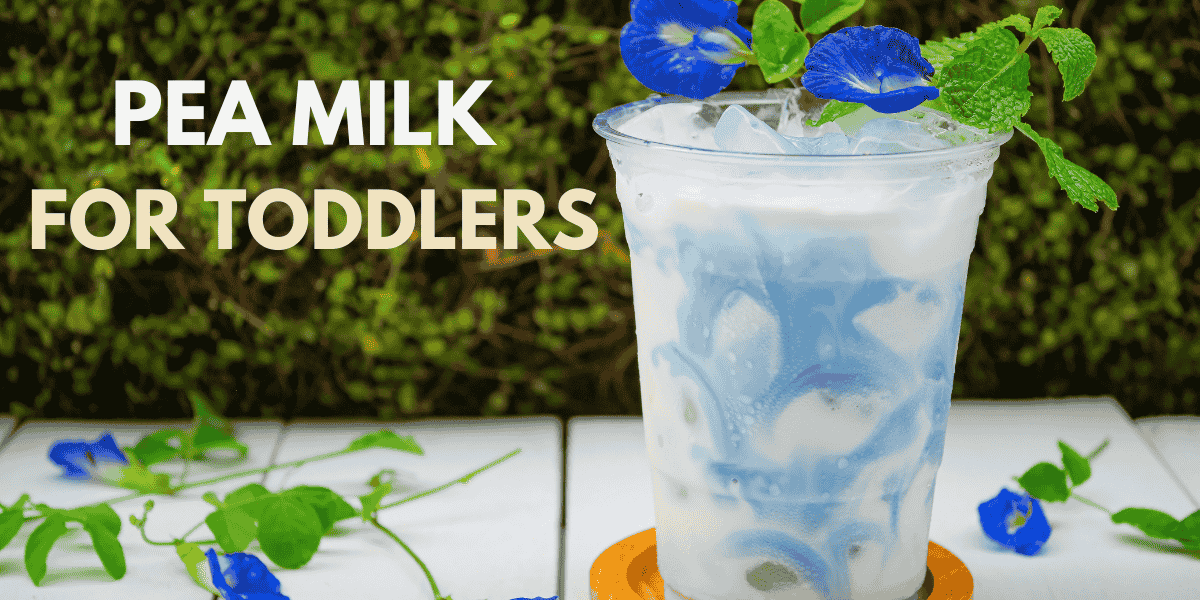
When choosing pea milk, I’d recommend the plain or unsweetened variety, as these usually have fewer thickeners, oils, or flavorings. A quick look at the nutrition facts table shows that pea protein milk can deliver vitamins A and D, along with about 4.5 grams fat and 1 gram carbohydrate per cup, which is quite good for toddlers.
While not exactly comparable to cow’s milk in some variable levels of nutrients, this milk alternative provides a significant amount of calcium and protein, which can be useful if you’re looking for a non-dairy option that’s also rich in vitamins. For families with dietary needs, this right choice can be helpful as a safe and nutritious plant-based milk for young children.
Almond Milk
Almond milk is a dairy-free option made from ground almonds and water, often fortified with essential vitamins and minerals like calcium, vitamin A, vitamin D, and vitamin E. Since almond milk is low in protein, fat, and carbohydrates, parents may want to ensure toddlers receive balanced nutrition from other sources.
Some varieties use thickeners and flavoring to improve texture and taste, but it’s best to choose unsweetened options for young children. However, because it’s derived from tree nuts, almond milk is not suitable for toddlers with tree nut allergies.
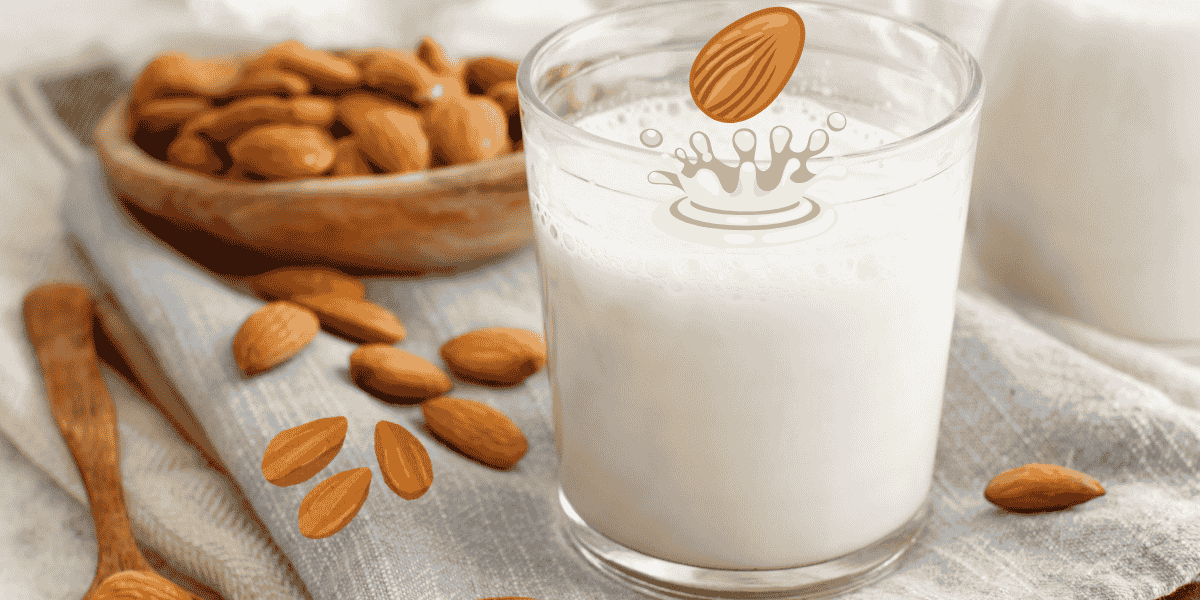
Coconut Milk
Many parents are turning to plant-based milks for their young ones, with pea milk becoming a popular choice. This non-dairy milk alternative is often surprising for those who haven’t tried it before, especially when they learn it’s made from yellow split peas. Parents of toddlers and young kids with multiple food allergies have found it to be a handy option, as it’s soy-free, nut-free, and gluten-free.
One brand on the market, Ripple, has developed a pea drink fortified with key nutrients like calcium and vitamin D to provide essential nutrition for growing children. For toddlers who need a good amount of protein and fat, this milk provides 8 grams of protein and 4.5 grams of fat per 1 cup serving, making it a creamy and milk-like option.
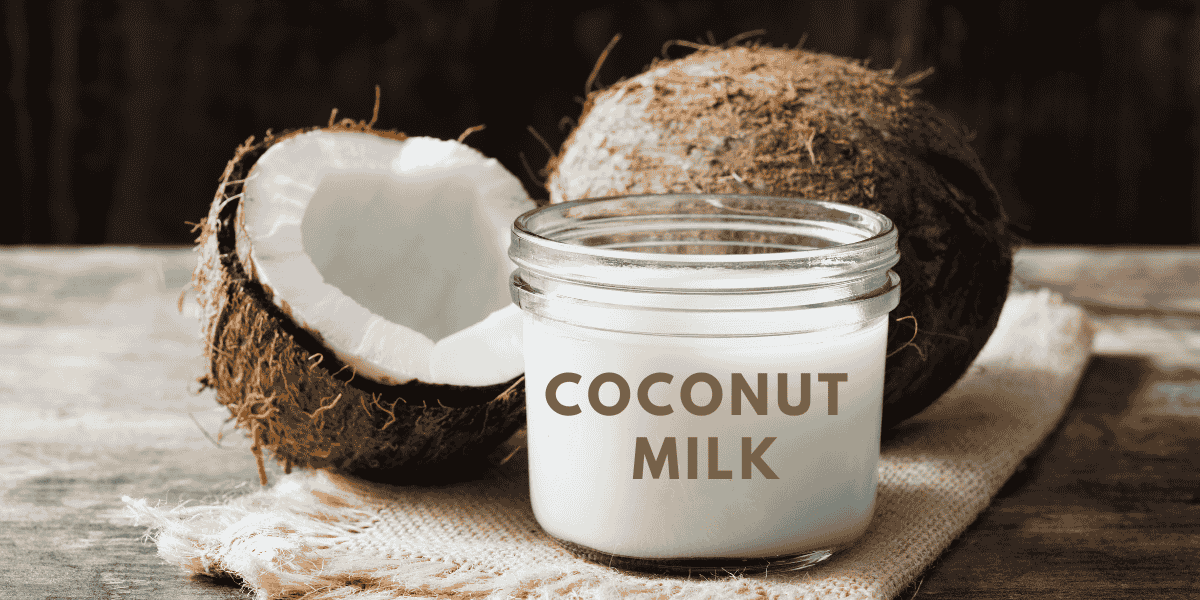
What’s unique about pea protein milk is that it’s specifically designed with young kids in mind. The calcium content is impressive, with some varieties providing 440 mg per serving, along with 110 mcg of vitamin A and 6 mcg of vitamin D, meeting nutrition needs often expected from dairy alternatives.
This unsweetened drink is also convenient for cooking and baking for the family. With its high protein and low carbohydrate levels (only 1 gram of carbs), pea milk offers parents a valuable choice when looking for a non-dairy drink for their toddler that is not comparable to the average cow’s milk but rich in the nutrients growing children need.
Rice Milk
Rice milk is a dairy-free milk alternative popular for toddlers with soy allergies. Made from milled rice and water, it often includes thickeners and flavoring to improve texture and taste. Some commercial rice milks are fortified with essential vitamins like calcium, vitamin A, and vitamin D to boost toddler nutrition, as plain rice milk is low in fat and protein.
Fortified rice milk is a reliable milk substitute with vitamin fortification to support growing kids, offering a variety of rice milk flavors and rice milk varieties to suit different tastes. Though unsweetened and low in protein, these milk options can contribute to a balanced diet when combined with other nutrient-rich foods.
Check the label for specific brands and their content in grams, milligrams, and micrograms of nutrients like fat, carbohydrates, and more.
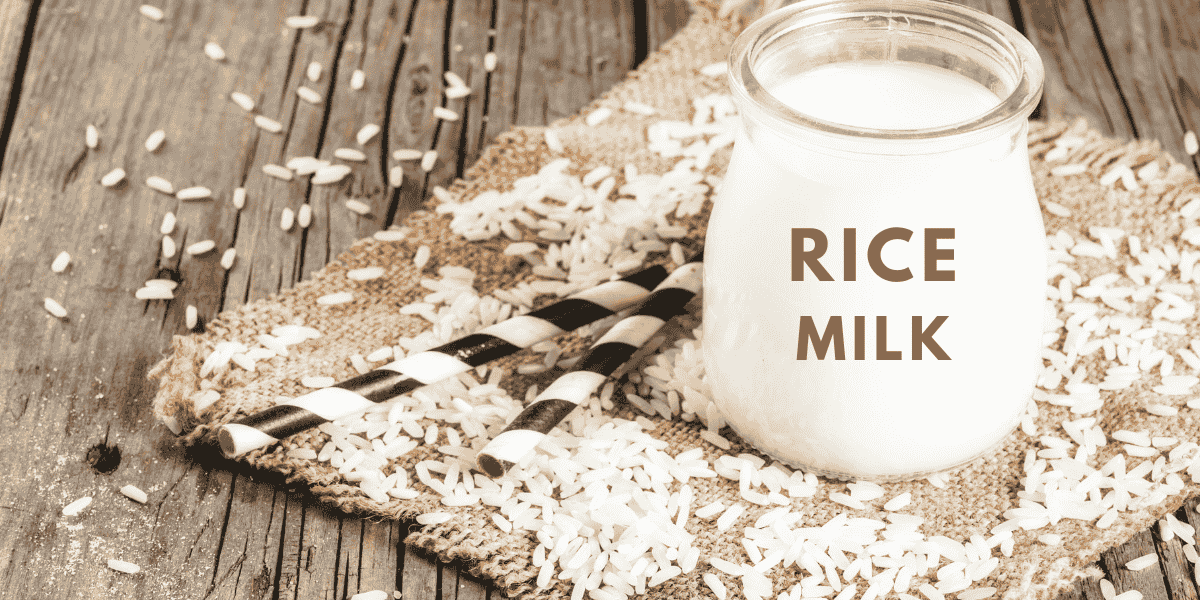
Hemp Milk
Hemp milk is one of the plant-based milks becoming popular as a toddler beverage due to its rich omega 3 and omega 6 fatty acids content, which are essential for growth. With its fat content and nutritional value, it offers a healthy option for families looking for milk alternatives.
For a toddler diet, fortified hemp milk provides some protein—though it’s lower compared to soy milk or pea protein milk. Each 1 cup serving of unsweetened hemp milk has minimal added sugar, helping manage a child’s sugar intake while offering fat and essential nutrients like calcium and vitamins A and D.
Available in the refrigerated dairy section or as shelf-stable cartons, this alternative milk can be a practical choice for busy families.
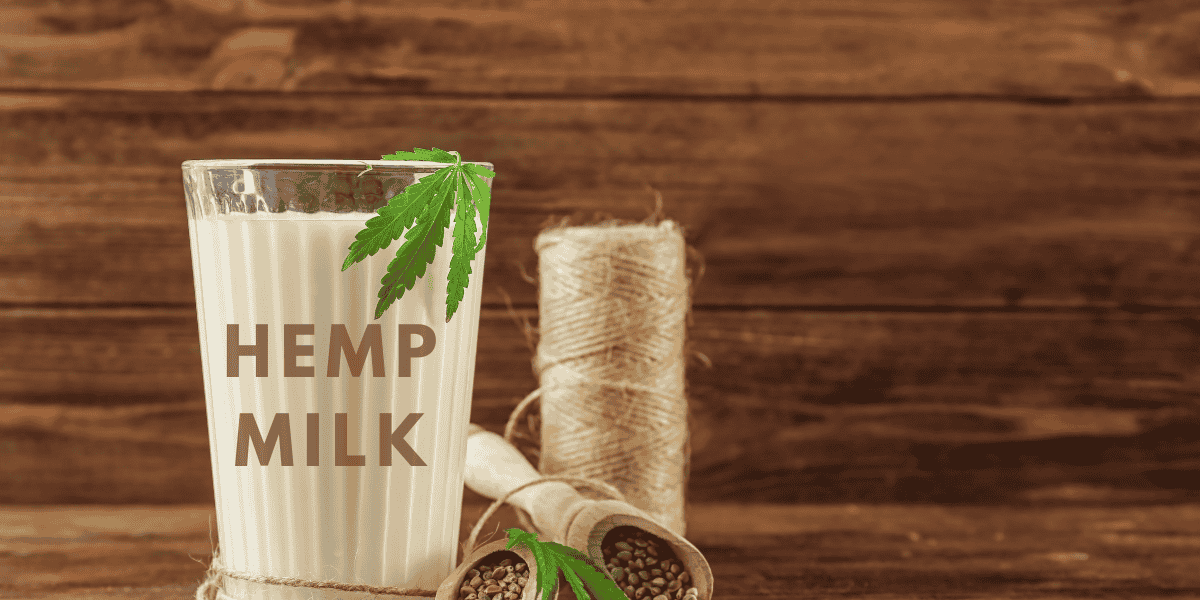
Nutritional Considerations
Is Soy Safe for Children?
Soy products like soy milk have stirred concerns among parents, especially when it comes to children and potential risks like feminization in boys or links to cancer. Some worry that isoflavones in soy foods—plant chemicals with estrogen-like activity called phytoestrogens—might behave like estrogens in the body.
However, these plant compounds interact differently with structures and hormones in human biology. Studies show that moderate intake of soy is generally safe for kids and may even benefit overall health when introduced at an early age. Research supports that consuming soy milk with organic and non-GMO labeling offers added reassurance, giving it a seal of approval for those looking to avoid possible risks while supporting health benefits.
Are Homemade Plant Milks Okay for Toddlers?
For parents considering homemade plant-based milk options like almond or oat milk for toddlers and children, it’s essential to understand the nutrition differences between homemade and commercial choices. Homemade plant milk lacks fortification with key nutrients, such as Vitamin D, Vitamin B12, and Calcium, which are often added to commercial plant beverages to make them a reliable primary source of nutrition for growing kids.
While homemade versions can be a fun addition to meals or used in a nutritious pancake recipe or oatmeal, they shouldn’t be the main milk source without added fortification. Including these essential vitamins and calcium is vital to help meet toddlers’ daily requirements when using plant-based milks.
Concerns About Plant-Based Milk
Should I Worry About Food Additives in Plant-Milks?
A lot of people are concerned about ingredients in plant milks, especially when it comes to emulsifiers, preservatives, and thickeners often used to improve texture. Online fear-mongering can make it hard to know what to believe, especially with so much information written in detail about processed foods and kids’ nutrition.
For parents, it can feel overwhelming to balance safety and health, especially when the reality isn’t always black and white. The truth is, while food additives can sound complex, they’re monitored and tested to safe levels in places like the UK and are generally found to be safe for humans in small amounts. It’s important to keep the bigger picture in mind—most additives used are minimal and help make foods like plant milks suitable alternatives, especially when dietary choices, allergies, or intolerances limit other options.
For children, moderation is key, and choosing these options in a balanced plan may actually be beneficial in providing necessary nutrients that otherwise might be missing.
Milks to Avoid for Toddlers
For toddlers and young children under the age of five, it’s best to avoid rice drinks due to trace levels of arsenic found in the soils where rice is typically grown. While plant-based milk can be a safe choice, this type of milk may not be ideal for children under five because of potential arsenic content.
Bottom Line
While plant-based milks can be a nutritious option for toddlers, it’s crucial for parents to carefully choose the right type to ensure their child’s growth and development. Nutritionally, some plant milks like soy and oat may offer more benefits than others, but it’s essential to consider factors like added sugars, additives, and allergens.
Always consult a pediatrician before making the switch to plant-based alternatives, especially for children under five. Choosing the best plant milk requires attention to both the child’s specific nutritional needs and the potential risks associated with certain types, such as rice milk’s arsenic content. Ultimately, plant-based milks can be a safe and healthy option for toddlers when chosen wisely.
Frequently Asked Questions (FAQs)
Is Plant-Based Milk Okay For Toddlers?
For a child aged 2–3 years, calcium-fortified plant-based drinks can serve as a supplement but should not replace main liquid food sources without guidance. Organizations like the Spanish Society of Pediatrics advise that these alternatives be never used exclusively in early childhood due to nutritional needs.
Which Plant-Based Milk Is Best For Babies?
For vegan children, fortified and unsweetened soya milk is often recommended as it has a similar protein content to cow’s milk and is usually well tolerated. Pea milk is another good option with a protein level close to soya milk and can be a healthy alternative for toddlers.
Can I Give My 1 Year Old Oat Milk Instead Of Cow’s Milk?
For babies and toddlers, oat milk and nut milks aren’t usually recommended as a complete replacement for dairy because they’re often low in fat and protein, which are essential for healthy growth and development. While soy milk can sometimes be an option for children under 5 years, oat milks alone might not provide enough nutrients needed at this young age.
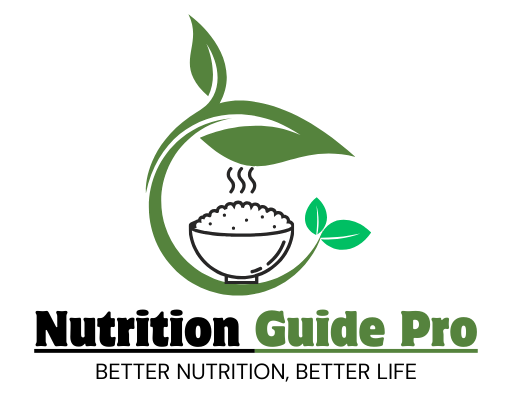


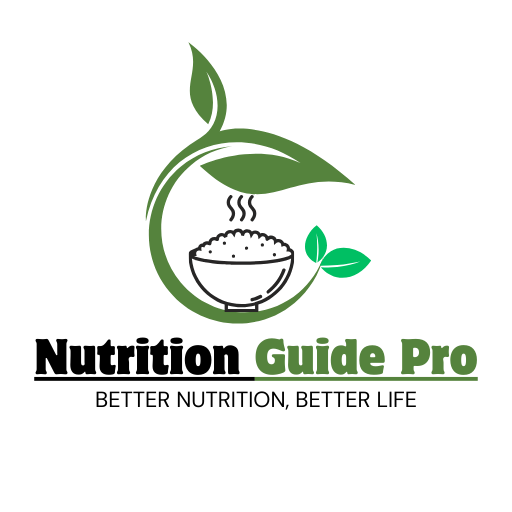
3 thoughts on “Plant Based Milks for Infants and Toddlers”